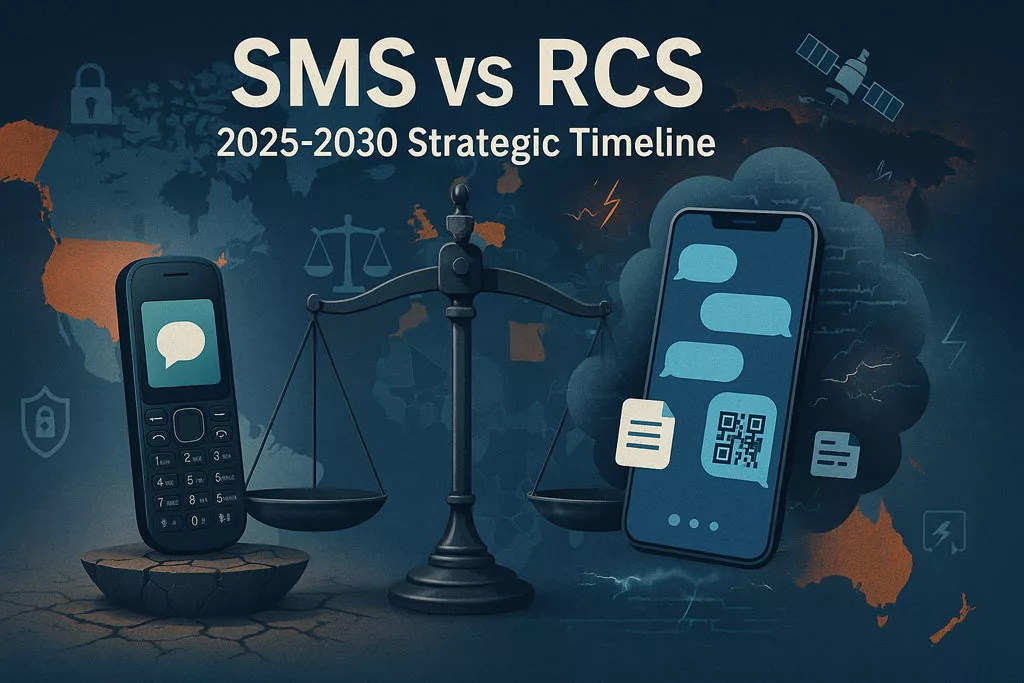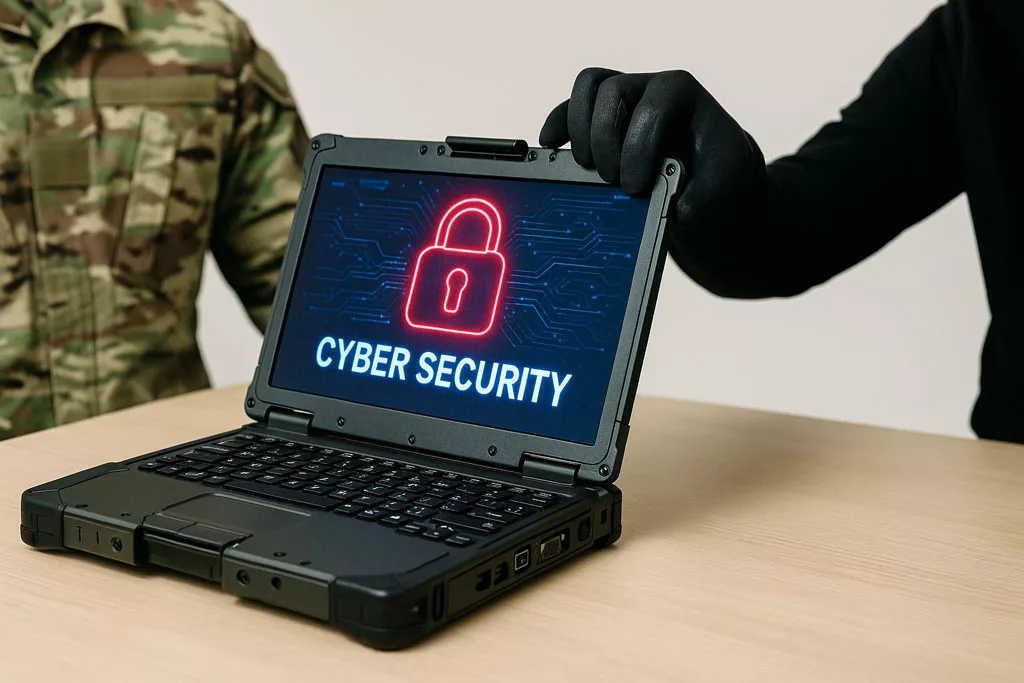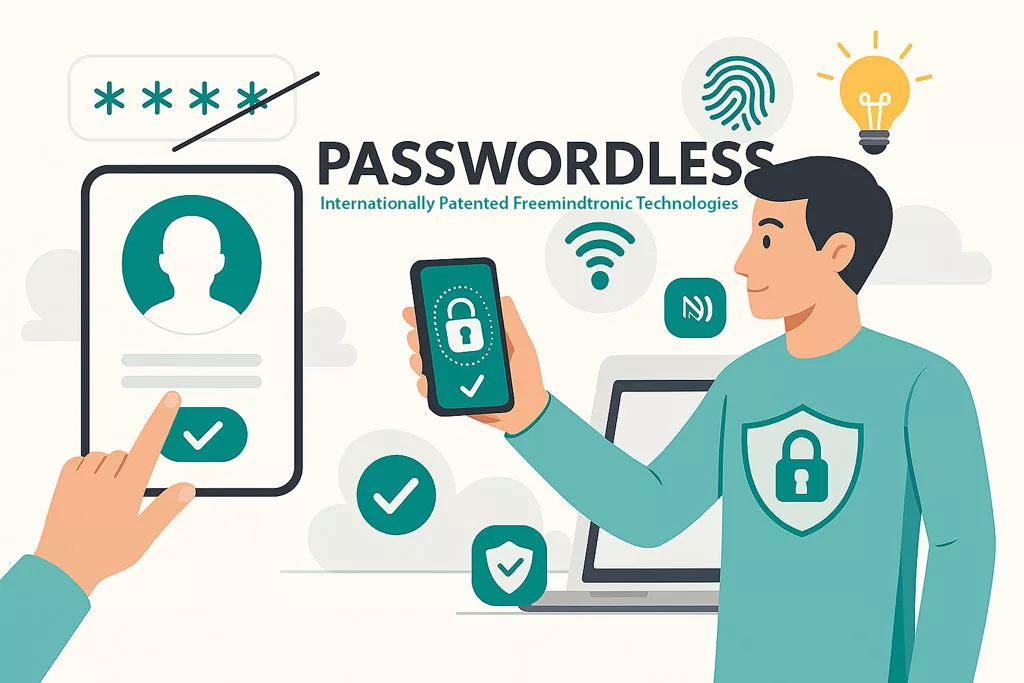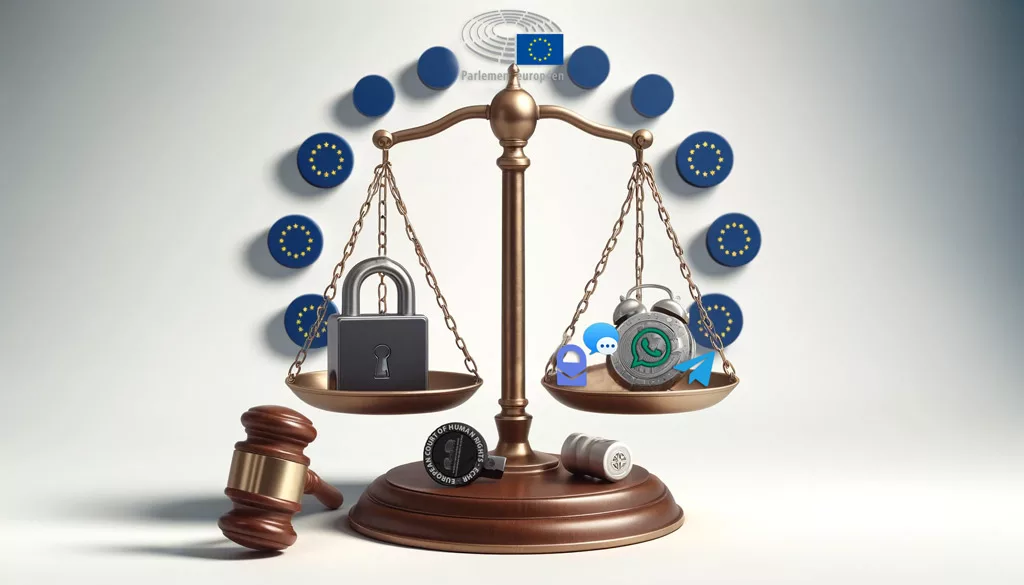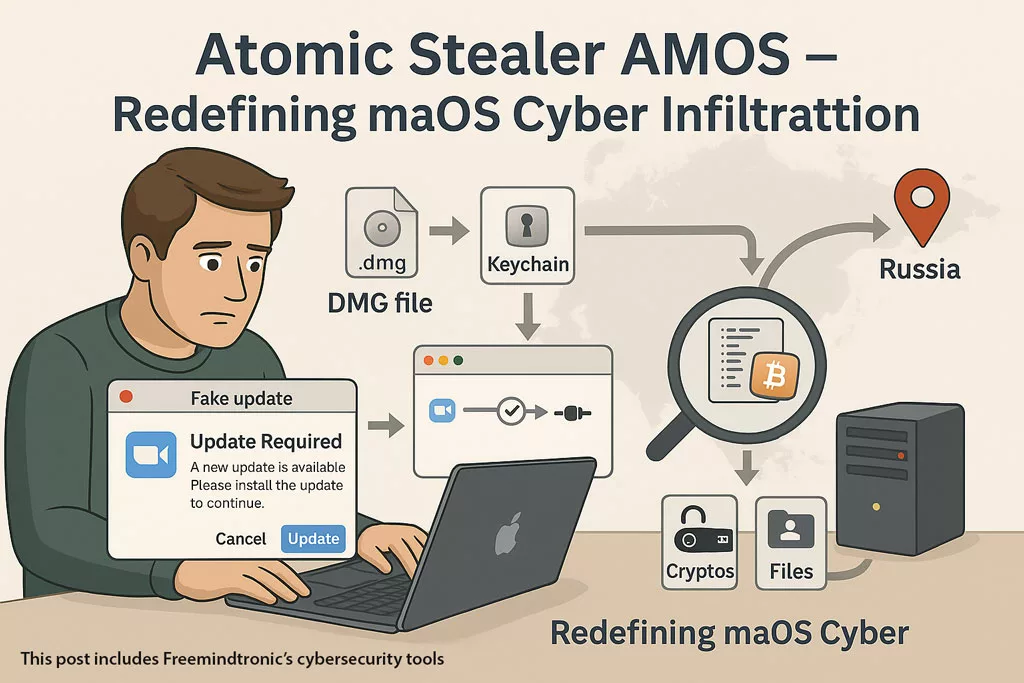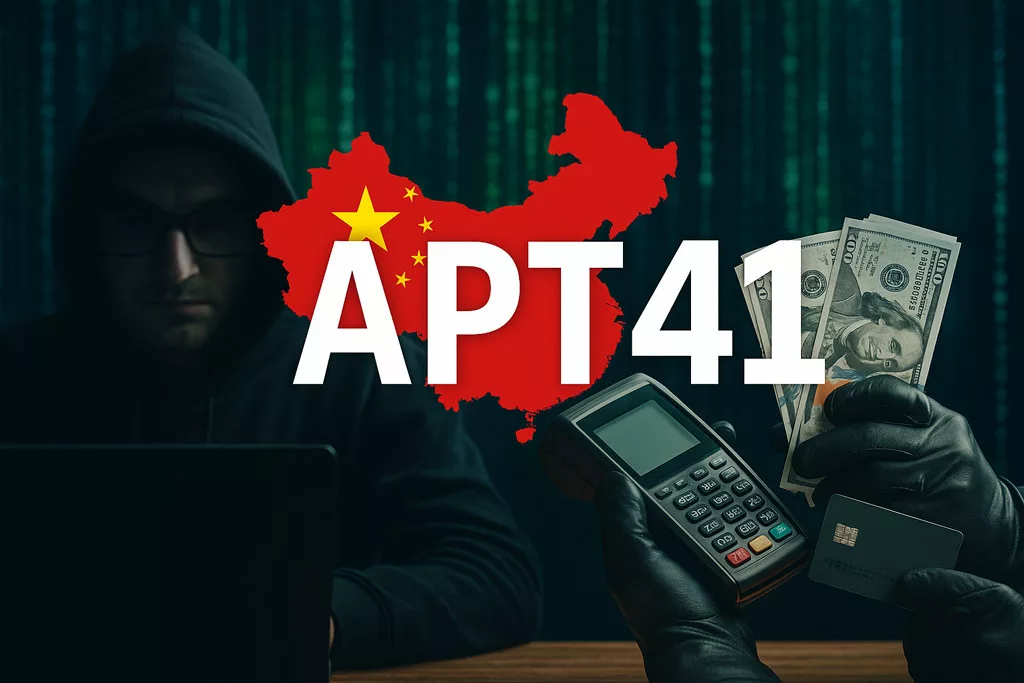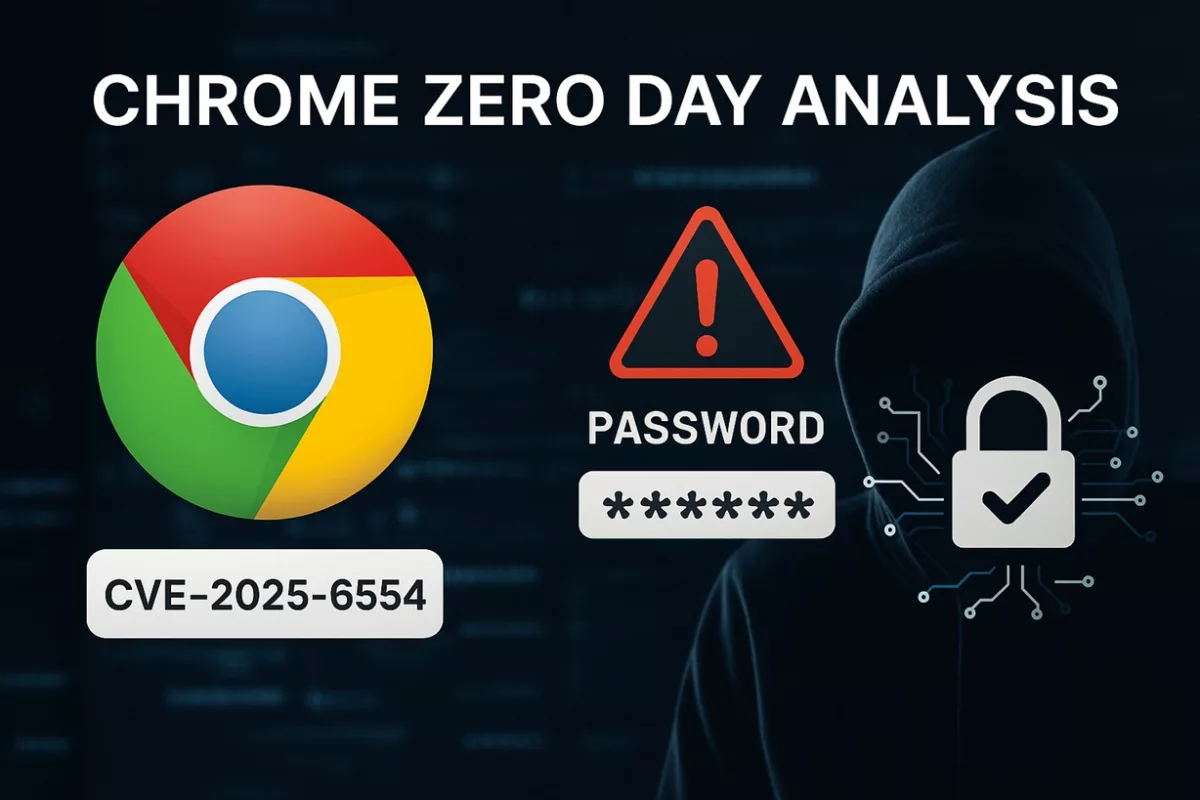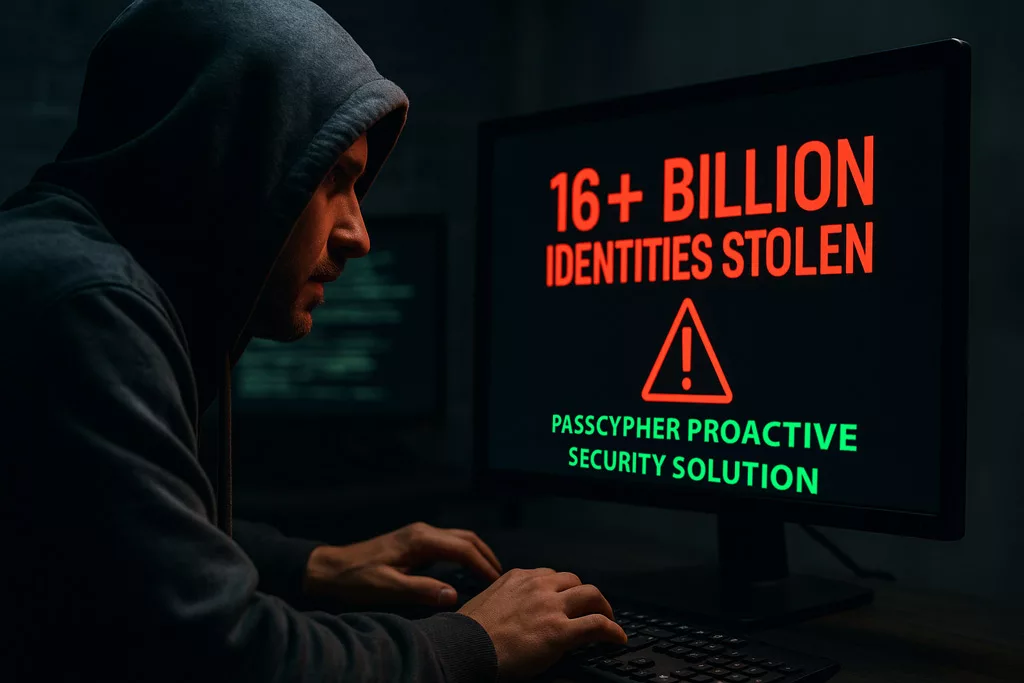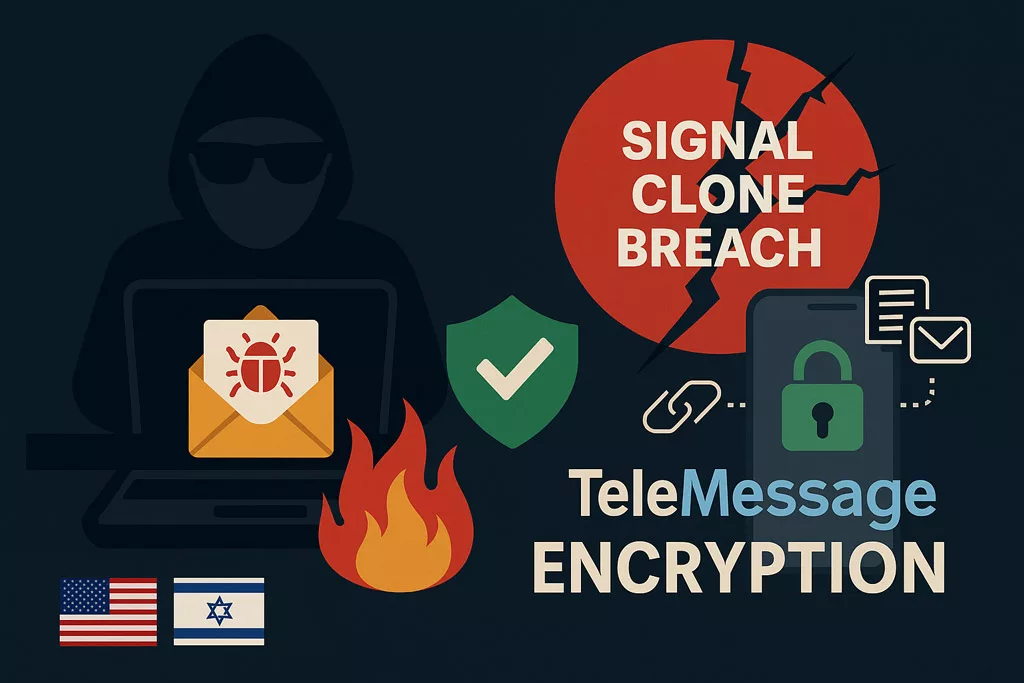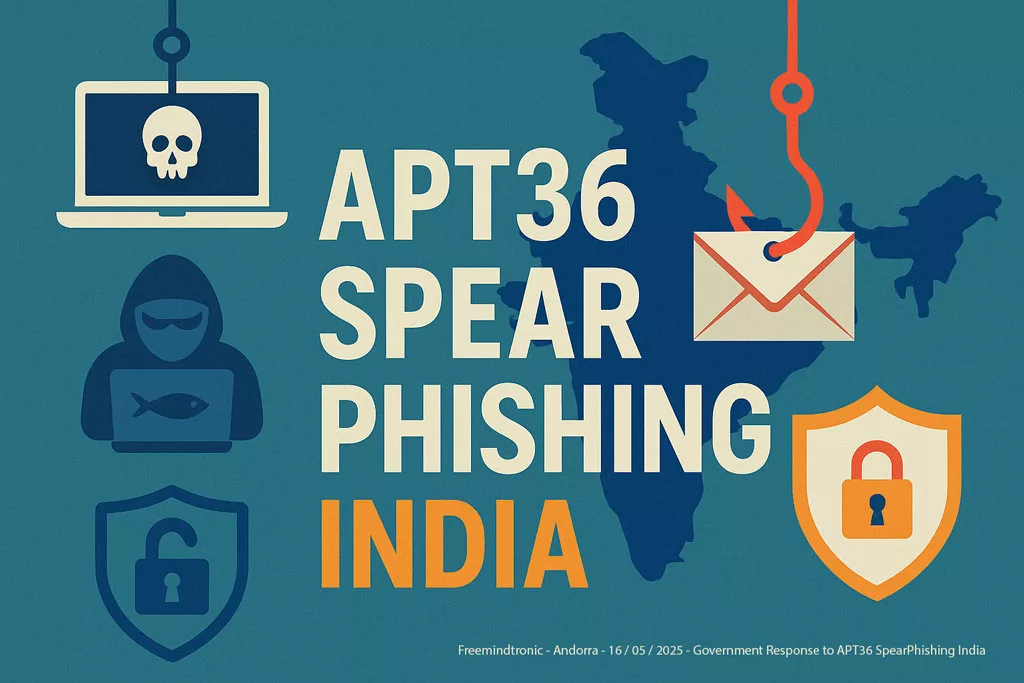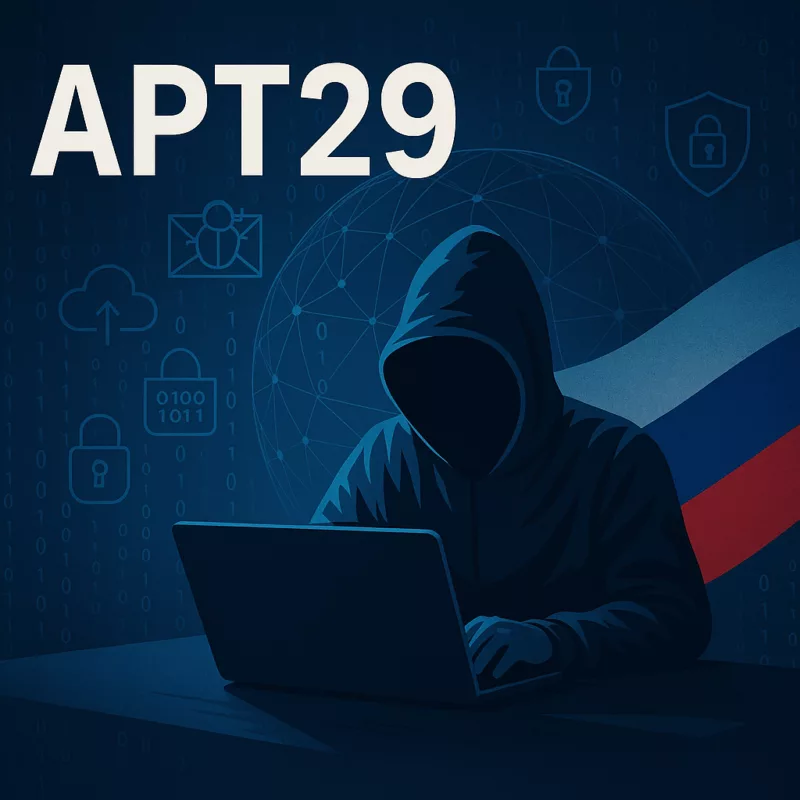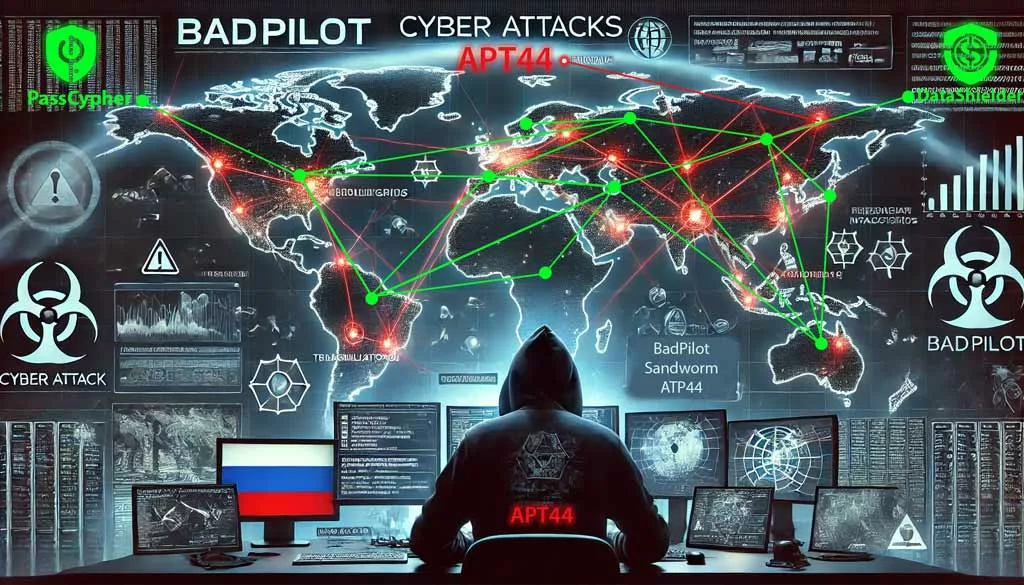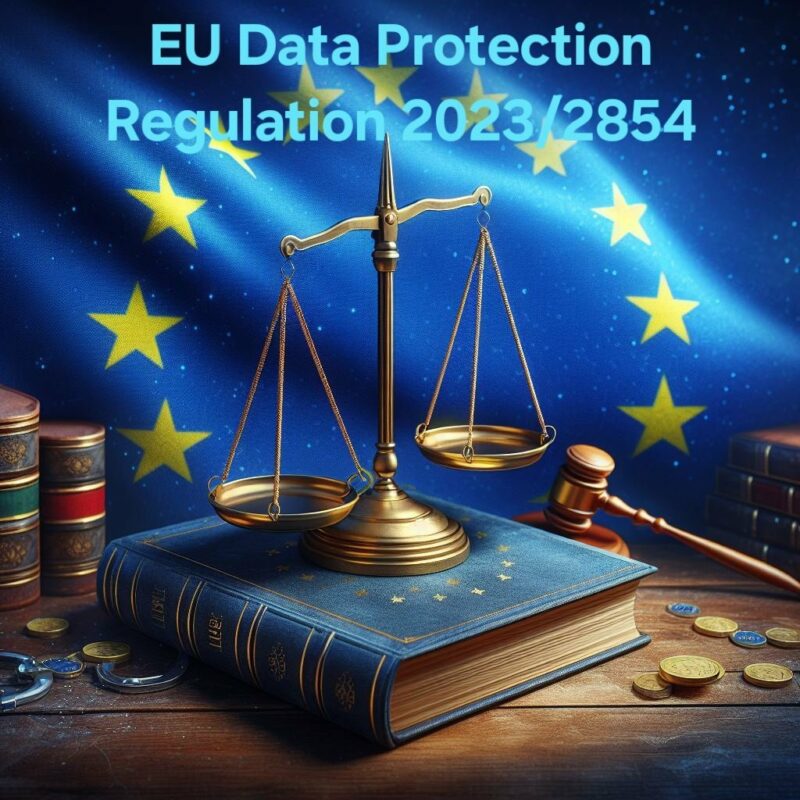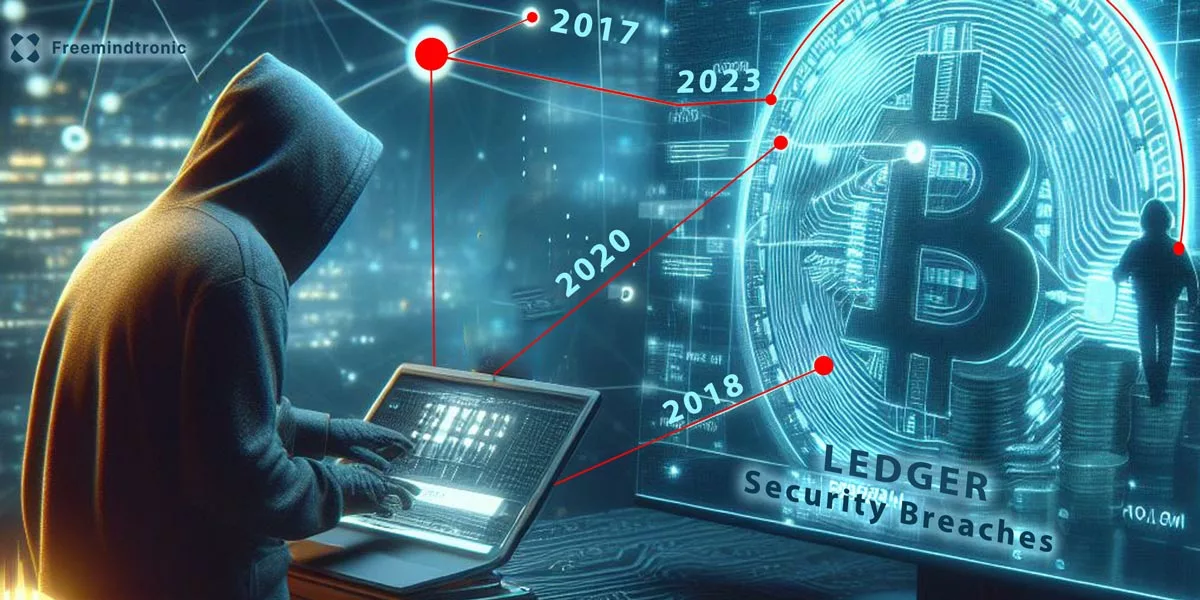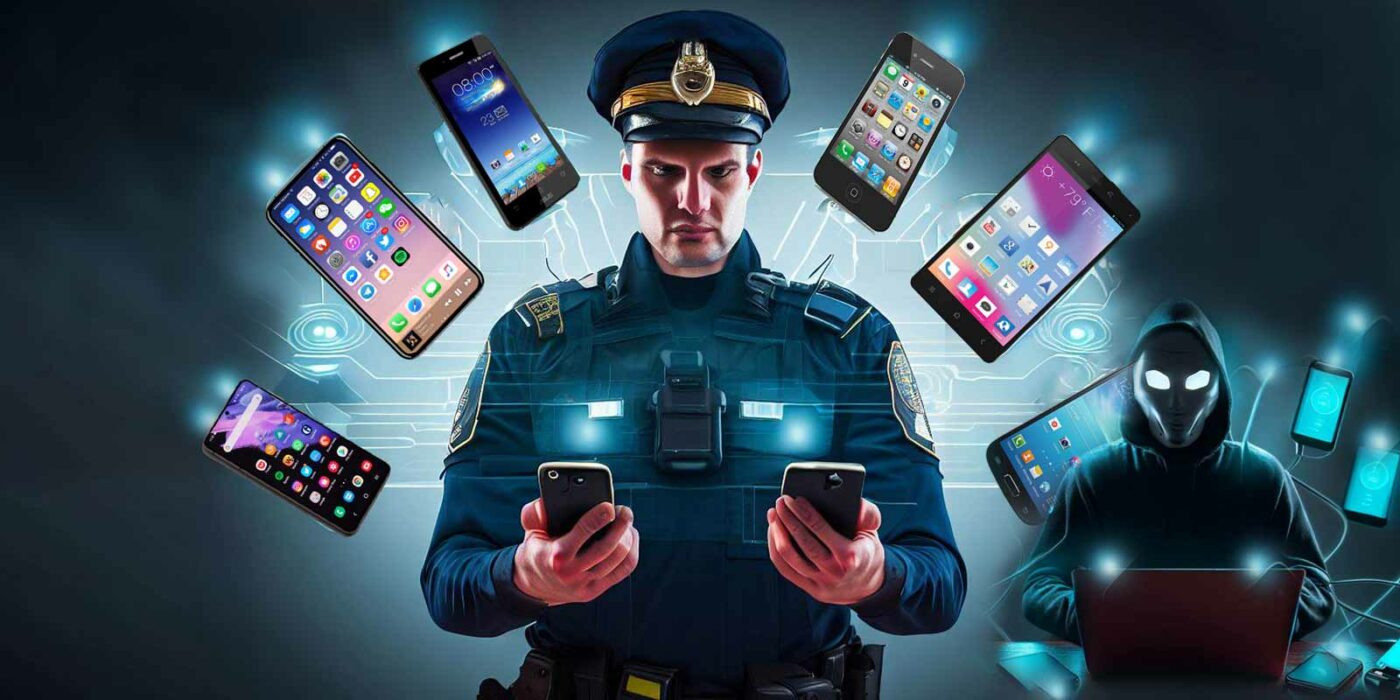Telegram’s Impact on Digital Security
Key Highlights: Essential Points from the Telegram and Cybersecurity Case
- Telegram and Cybersecurity: A Critical Moment
- Official Charges Against Pavel Durov
- The Role of Telegram’s Encryption in Legal Challenges
- Challenges and Comparisons in Implementing Content Moderation in E2EE Platforms
- Technical Feasibility and Regulatory Expectations
- Implications for Other Encrypted Messaging Platforms
- Legal Implications and Precedents for the Tech Industry
- International Reactions to the Arrest of Pavel Durov
- Broader Implications and Potential Consequences
Pavel Durov’s arrest marks a pivotal moment for Telegram and the broader cybersecurity landscape. French authorities accuse him of failing to prevent criminal activities on Telegram, such as drug trafficking, cyberbullying, and promoting terrorism. This situation underscores the significant responsibility tech leaders hold in overseeing their platforms, particularly when encryption is a key feature.
The Challenge of Balancing Legal Compliance and Platform Responsibility
Telegram’s legal challenges stem from the need to balance robust user privacy with compliance to legal standards. Authorities argue that Telegram could have implemented more stringent moderation tools and policies. However, the specific charges against Durov reveal the inherent difficulties in managing an encrypted platform where even metadata might be insufficient to preempt criminal activities. The legal demands for cooperation, such as providing access to encrypted data, clash directly with Telegram’s privacy-centric approach, setting a critical precedent for other platforms.
Implications for Future Platform Management
The absence of these preventative steps highlights the increasing global pressure on tech companies to balance the protection of user privacy with the need to comply with legal requirements. This case has broader implications for how encrypted messaging services, including platforms like Signal and WhatsApp, manage their responsibilities to prevent criminal misuse while maintaining user trust.
The case against Telegram underscores growing pressure on tech companies to navigate the delicate balance between privacy and legal compliance.
Official Charges Against Pavel Durov
French authorities have accused Pavel Durov of serious crimes connected to his role in managing Telegram. They allege that the platform has become a safe haven for criminal activities, including drug trafficking, money laundering, terrorism, and the distribution of child sexual abuse material. According to the charges, Durov failed to implement adequate measures to prevent these illegal activities and did not cooperate sufficiently with law enforcement agencies. This case underscores the growing tension between maintaining user privacy and ensuring national and international security.
For further details, you can access the official press release from the Tribunal Judiciaire de Paris here.
Legal Charges Against Pavel Durov: A Closer Look
French authorities have outlined a series of severe charges against Pavel Durov, emphasizing the serious legal implications for Telegram. The charges include:
- Complicity in Administering an Online Platform for Illegal Transactions: This involves accusations of enabling organized crime through Telegram’s platform.
- Failure to Cooperate with Law Enforcement: Authorities allege that Telegram refused to provide necessary information or documents, hindering lawful interception efforts.
- Complicity in Child Pornography-Related Crimes: This includes the possession, distribution, and access to child pornography facilitated through Telegram.
- Complicity in Drug Trafficking: Telegram is accused of being a medium for drug-related transactions.
- Complicity in Unauthorized Use of Technology: The charges suggest the use of unauthorized technology or equipment to facilitate illegal activities.
- Fraud and Organized Crime Involvement: Telegram is also linked to fraud and broader organized crime activities.
These charges underscore the complexity of managing an encrypted messaging platform in compliance with both privacy norms and legal obligations.
The Role of Telegram’s Encryption in Legal Challenges
Telegram’s encryption, designed to protect privacy, is central to these legal disputes, creating tension between privacy and security. Law enforcement argues that encryption, while essential for data protection, should not impede criminal investigations. This debate raises crucial questions about the extent of access authorities should have to encrypted communications, especially when linked to criminal activities. The outcome of Durov’s case could set a global precedent, shaping how governments might regulate encrypted messaging services in the future.
Challenges and Comparisons in Implementing Content Moderation in E2EE Platforms
The technical feasibility and effectiveness of content moderation in encrypted messaging platforms like Telegram are central to the accusations against Durov. Authorities have highlighted that Telegram could have implemented more stringent measures, similar to those attempted by other platforms, to prevent the misuse of its services.
While WhatsApp uses metadata analysis to curb abuse, Signal relies on user reporting, and Apple’s client-side scanning has sparked privacy concerns. Each approach shows different ways platforms balance privacy with legal compliance.
Technical Feasibility and Regulatory Expectations in Detecting Cybercriminal Activity on Encrypted Messaging Platforms
When discussing the challenges of regulating encrypted messaging platforms like Telegram, it’s crucial to address the technical feasibility of these regulatory demands. Authorities often push for various methods to detect and prevent cybercriminal activities on these platforms, but the technical limitations of such methods are frequently overlooked.
The Challenge of Implementing Effective Measures
Encrypted messaging platforms are designed to protect user privacy and data security. These platforms make it nearly impossible for administrators to access the content of communications. This design presents significant challenges when regulatory bodies demand that platforms implement mechanisms such as metadata analysis, user reporting, or client-side scanning to detect illegal activities.
- Metadata Analysis offers some insights by tracking message timestamps, user IDs, IP addresses, and other metadata. However, it cannot reveal the actual content of messages. This limitation often reduces the effectiveness of metadata as a tool for comprehensive law enforcement action.
- User Reporting relies heavily on the user base to identify and report illegal activities. While this approach is useful, it is inherently reactive. It cannot prevent the initial dissemination of illegal content, making it less effective in real-time enforcement.
- Client-Side Scanning seeks to detect illegal content before it is encrypted. However, this method raises serious privacy concerns. Additionally, its effectiveness can be completely undermined by advanced encryption tools like DataShielder NFC HSM. These tools encrypt content before it even reaches the messaging platform, making any scanning by the platform ineffective.
The Ineffectiveness of Regulatory Demands
Given these technical challenges, it is vital to question the legitimacy and practicality of some regulatory demands. Insisting on the implementation of solutions that are unlikely to work could lead to a false sense of security. Worse, it might compromise the security of the platform without addressing the underlying issues.
For example, regulatory bodies might mandate platforms to implement client-side scanning. Yet, if users employ tools like DataShielder NFC HSM, which encrypt content before it interacts with the platform, such scanning becomes useless. This scenario illustrates the futility of imposing unrealistic technical demands without considering their actual effectiveness.
Broader Implications for Legal Frameworks
These technical limitations highlight the need for regulatory frameworks to be grounded in a clear understanding of what is technically possible. Imposing blanket requirements on platforms like Telegram, without considering the practical challenges, can lead to unintended consequences. For instance, pushing for unrealistic solutions could weaken user privacy and platform security without effectively deterring criminal activities.
It is crucial that any regulatory approach be both practical and effective. This means understanding the capabilities and limitations of current technology and crafting laws that genuinely enhance security without undermining the core privacy protections that encrypted messaging platforms offer.
Practical Challenges and the Ineffectiveness of Certain Regulatory Demands
The Complexity of Regulating Encrypted Messaging Platforms
When authorities attempt to regulate encrypted messaging platforms like Telegram, they face inherent technical challenges. Authorities, in their efforts to combat illegal activities, often propose measures such as client-side scanning and metadata analysis. These methods aim to detect and prevent cybercriminal activities. While these approaches might seem effective in theory, their practical application—especially on platforms like Telegram—proves to be far less straightforward.
The Limitations of Client-Side Scanning
Client-side scanning aims to detect illegal content on devices before encryption. This process intends to catch illicit content early by scanning files directly on the user’s device. However, several significant challenges arise with this method:
- Privacy Concerns: Scanning files on the user’s device before encryption fundamentally disrupts the trust between users and the platform. This approach compromises users’ expectations of privacy, which is a core principle of platforms like Telegram. Users may begin to question the security of their communications, knowing their data is subject to scrutiny before being encrypted.
- Circumvention with Advanced Encryption Tools: Privacy-conscious users, or those with malicious intent, can bypass client-side scanning by using third-party encryption tools like DataShielder NFC HSM. These tools encrypt data on the user’s device before it even interacts with the messaging platform. Consequently, any scanning or analysis conducted by Telegram or similar platforms becomes ineffective, as the content is already encrypted beyond their reach.
The Challenges of Metadata Analysis
Metadata analysis is another method proposed to track and prevent illegal activities without directly accessing message content. By analyzing metadata—such as timestamps, user identifiers, IP addresses, and communication patterns—law enforcement agencies hope to infer suspicious activities. However, this method also encounters significant limitations:
- Limited Insight: Metadata can provide some context but cannot reveal the actual content of communications. For instance, while it may show frequent communication between two parties, it cannot indicate whether the communication is innocuous or illegal. This limitation reduces its effectiveness as a standalone method for crime prevention.
- Anonymization through Advanced Tools: Tools like DataShielder NFC HSM anonymize operations by encrypting messages and files before they interact with the platform. This means that while metadata might still be collected by the platform, it does not contain useful information about the encrypted content, which complicates any attempts to infer the nature of the communication.
Implications of Ineffective Regulatory Measures
The insistence on regulatory demands such as client-side scanning and metadata analysis, without a clear understanding of their limitations, could lead to a false sense of security. Policymakers might believe they have established effective safeguards. However, these measures could be easily circumvented by those who are technically adept. This not only fails to address the underlying issues but could also compromise the platform’s integrity. Consequently, users might be pushed toward more secure, yet potentially less compliant, tools and methods.
Implications for Other Encrypted Messaging Platforms
The ongoing legal challenges faced by Telegram could have far-reaching consequences for other encrypted messaging platforms. If Durov is held accountable for failing to moderate content effectively, it may lead to increased regulatory pressure on companies like Signal, WhatsApp, and others to introduce similar measures. This could ultimately result in a shift in how these platforms balance user privacy with legal and ethical responsibilities.
Impact on Users and Companies
Consequences for Users
For users in restrictive regions, any weakening of Telegram’s cybersecurity could be perceived as a direct threat, leading to a loss of trust and potential migration to other platforms perceived as more secure.
Repercussions for Tech Companies
Durov’s arrest could set a precedent, forcing other tech companies to reassess their encryption strategies and law enforcement cooperation. New regulations could drive up compliance costs, impacting innovation and how companies balance security with privacy.
Telegram and Cybersecurity: Legal Implications and Precedents for the Tech Industry
Telegram and Cybersecurity Legal Precedents
Durov’s case isn’t the first of its kind. Similar cases, like Apple’s refusal to weaken its encryption for U.S. authorities, highlight the tension between national security and data privacy. Such cases often set benchmarks for future legal decisions, emphasizing the importance of Telegram and cybersecurity.
mpact on Leadership Responsibility in Telegram and Cybersecurity
Durov’s situation could lead to stricter legal standards, holding tech leaders accountable for both platform management and preventing criminal misuse. This may push the development of more comprehensive Telegram and cybersecurity measures to ensure platforms can’t be exploited for illegal activities.
Latest Developments in the Telegram CEO Case
In a significant update to the ongoing legal saga surrounding Pavel Durov, the CEO of Telegram, French authorities have officially indicted him on several serious charges. These include:
- Dissemination of Child Abuse Imagery: Allegations that Telegram facilitated the sharing of illicit content.
- Involvement in Drug Trafficking: The platform allegedly enabled transactions related to illegal drugs.
- Non-compliance with Law Enforcement Requests: Refusal to provide necessary information to authorities.
- Complicity in Money Laundering: Suspected use of the service for laundering proceeds from criminal activities.
- Unauthorized Provision of Encryption Services: Accusations of offering cryptographic services without proper declarations.
As part of his judicial supervision, Durov has been barred from leaving France, required to post a bail amounting to approximately $5.5 million, and is mandated to report to a police station twice weekly.
Global Tech Executives and Telegram’s Cybersecurity Implications
This indictment marks a groundbreaking moment in the regulation of digital platforms. It raises the stakes for tech executives worldwide, who may now face criminal liability for content hosted on their platforms. The precedent set by this case could have wide-ranging implications for how digital services operate, particularly in jurisdictions with stringent content moderation laws.
French Legal System’s Approach to Telegram and Cybersecurity
French authorities are demonstrating a strict approach to regulating encrypted messaging platforms, emphasizing the need for compliance with national laws, even when it conflicts with the platform’s global operations. This case could prompt other nations to adopt similar legal strategies, increasing pressure on tech companies to enhance their collaboration with law enforcement, regardless of the potential conflicts with privacy policies.
Continued Monitoring and Updates
As this case evolves, it is crucial to stay informed about new developments. The situation is fluid, with potential implications for tech regulation globally. We will continue to update this article with factual, objective, and timely information to ensure our readers have the most current understanding of this critical issue.
The Potential Expansion of the Case: Toward Global Prosecution of Encrypted Messaging Services?
Durov’s arrest, tied to Telegram and cybersecurity concerns, raises significant questions about the future of end-to-end encrypted messaging services. This case could lead to similar prosecutions against other global platforms, challenging the security and privacy standards they provide.
International Reactions to the Arrest of Pavel Durov
European Commission’s Position on the Telegram Case
The European Commission has clarified its stance regarding the ongoing Telegram case in France. According to a spokesperson from the Commission, “The Digital Services Act (DSA) does not define what is illegal, nor does it establish criminal offenses; hence, it cannot be invoked for arrests. Only national or international laws that define a criminal offense can be used for such actions.” The Commission emphasized that while they are closely monitoring the situation, they are not directly involved in the criminal proceedings against Pavel Durov. They remain open to cooperating with French authorities if necessary. For more details, refer to the official statement from the European Commission.
Reactions from Russia on Pavel Durov’s Arrest
The Russian government has expressed concerns over the arrest of Pavel Durov, citing it as a potential overreach by French authorities. Russian officials suggested that the case could be politically motivated and have called for the fair treatment of Durov under international law. They also warned that such actions could strain diplomatic relations, though no official link was provided for this claim.
The United States’ Cautious Approach
The United States has taken a more reserved stance regarding the arrest of Telegram’s CEO. American officials highlighted the importance of balancing cybersecurity with civil liberties. They expressed concerns that the arrest could set a troubling precedent for tech companies operating globally, especially those that prioritize user privacy. However, they acknowledged the need for cooperation in fighting crime, particularly in the digital space. Again, no direct link was provided.
United Arab Emirates’ Perspective
The UAE, where Pavel Durov has residency, has not issued an official statement regarding his arrest. However, sources suggest that the UAE government is monitoring the situation closely, considering Durov’s significant contributions to the tech industry within the country. The arrest has sparked debates within the UAE about balancing innovation and legal compliance, particularly regarding encrypted communications. For the official stance from the UAE, refer to the Ministry of Foreign Affairs.
In summury
The international reactions to the arrest of Pavel Durov underscore the far-reaching consequences of this legal action. From the European Commission’s cautious distancing to Russia’s concerns about rights violations, and the United States’ balanced approach, each response reflects broader concerns about the regulation of encrypted messaging services. As the case continues, these international perspectives will play a crucial role in shaping the future of digital privacy and security.
Broader Implications of Telegram and Cybersecurity Case
The indictment of Pavel Durov, CEO of Telegram, signals a profound shift in how global authorities might treat encrypted messaging platforms. This legal action could set a precedent, compelling tech executives to rethink their approach to content moderation and legal compliance. If Durov is held accountable for the illegal activities on Telegram, other platforms could face similar scrutiny, potentially leading to a global reassessment of encryption and privacy standards.
Broader implications of this case suggest a potential shift in how governments and tech companies will approach encryption and digital privacy, with possible global legal ramifications.
Reflection on Platform vs. Publisher Responsibilities
The case raises critical questions about the blurred line between platforms and publishers. Historically, platforms like Telegram have operated under the assumption that they are not responsible for user-generated content. However, this case challenges that notion, suggesting that platforms could bear legal responsibility for failing to prevent illegal activities. This shift could force companies to implement more rigorous content moderation, fundamentally altering how they operate.
Erosion of End-to-End Encryption
One of the most significant consequences of this case could be the erosion of end-to-end encryption. Governments might use the legal challenges faced by Telegram as justification to push for backdoors in encrypted services. This would compromise user privacy, making it easier for law enforcement to access communications but also increasing the risk of unauthorized access by malicious actors.
Global Legal Ramifications
The outcome of this case could influence legal frameworks around the world. Nations observing the French approach might adopt similar strategies, increasing the pressure on encrypted platforms to comply with local laws. This could result in a patchwork of regulations that complicate the operation of global services like Telegram, forcing them to navigate conflicting legal requirements.
Impact on Innovation and Trust
Innovation in the tech industry could suffer if companies are required to prioritize compliance over creativity. The fear of legal repercussions might stifle the development of new features, particularly those related to encryption and privacy. Additionally, trust between users and platforms could be eroded if companies are perceived as being too willing to cooperate with authorities, even at the expense of user privacy.
Trust and User Behavior
Users may lose trust in encrypted messaging platforms, fearing that their private communications could be compromised. This loss of trust could drive users to seek out alternative platforms that offer stronger privacy protections, potentially leading to a fragmented market with users dispersed across multiple, less regulated services.
The Blurred Line Between Platform and Publisher
The Telegram case highlights the blurred line between platform and publisher responsibilities. If platforms are held accountable for user-generated content, they may need to adopt editorial practices akin to those of publishers. This shift could fundamentally change the nature of digital platforms, turning them from neutral conduits into active gatekeepers of content.
Upholding the Presumption of Innocence for Pavel Durov
Despite the severity of the accusations against Pavel Durov, the presumption of innocence remains a fundamental legal principle. According to Article 9 of the French Code of Criminal Procedure, “Any person suspected or prosecuted is presumed innocent until their guilt has been established.” Additionally, this article emphasizes that violations of this presumption must be prevented, remedied, and punished according to the law. Until a court of law proves Durov’s guilt, he retains the right to be considered innocent. This principle is particularly important in high-profile cases, where public opinion may be influenced by the gravity of the charges. As the judicial process unfolds, it is essential to remember that guilt must be established beyond a reasonable doubt.
Telegram: A Global Tool with Multiple Uses
Global Adoption of Telegram
Today, Telegram and cybersecurity concerns intersect more than ever, with over 900 million active users each month. People use the platform for both personal and professional communication, as well as to share information within community groups. Telegram’s technical flexibility and strong privacy features make it particularly popular in regions where freedom of expression is restricted. It has also become vital for human rights activists, journalists, and political dissidents.
Governmental and Military Uses of Telegram
Beyond civilian use, Telegram and cybersecurity have critical roles in governmental and military contexts, especially during armed conflicts. For instance, during the war between Russia and Ukraine, Telegram was central. Both Ukrainian and Russian authorities, as well as activists, used the platform to share information, coordinate operations, and engage in information and disinformation campaigns. Military forces from both sides also relied on Telegram for tactical communications, leveraging encryption to secure strategic exchanges.
However, the same encryption that protects sensitive data also attracts terrorist groups and criminals. This further intensifies governments’ concerns over how to regulate these technologies.
A Complex Legal Challenge: The Investigation’s Background
The investigation that led to Pavel Durov’s arrest began in March 2024. At that time, French authorities increased their surveillance of online criminal activities. The Central Office for the Fight against Crime Related to Information and Communication Technologies (OCLCTIC) played a crucial role. They gathered evidence indicating that Telegram and its encryption were being misused by criminal organizations. By analyzing metadata and potential encryption vulnerabilities, investigators collected enough evidence to issue a European arrest warrant against Durov.
Cybersecurity Analysis: Metadata and Encryption Weaknesses
The arrest of Pavel Durov raises critical questions about how law enforcement bypasses robust security mechanisms like end-to-end encryption. This encryption aims to keep communications inaccessible to any external entity, including platform administrators, but vulnerabilities can still be exploited.
Metadata Analysis in Cybersecurity
Telegram and cybersecurity often intersect around metadata, which typically isn’t end-to-end encrypted. Metadata includes details like message timestamps, user IDs, IP addresses, and device information. While it doesn’t reveal content directly, it can establish behavior patterns, identify contact networks, and geolocate users. In the Telegram investigation, French authorities likely used this metadata to trace suspect connections and map criminal activities.
Encryption Weaknesses in Cybersecurity
Even well-designed end-to-end encryption can harbor weaknesses, often due to flaws in protocol implementation or key management. If a malicious actor, including an insider, introduces a backdoor, it can compromise the system’s security. Detailed investigations might also reveal errors in key management or temporary data storage on the platform’s servers.
Known Security Flaws in Telegram’s Cybersecurity
Since its inception, Telegram and cybersecurity have been challenged by several security flaws, sometimes questioning its encryption’s robustness. Notable incidents include:
- 2015: SMS Interception Attack – Researchers found that intercepting SMS verification codes allowed attackers to control user accounts, highlighting a weakness in Telegram’s two-step verification process.
- 2016: Encryption Key Incident – Security experts criticized Telegram’s key generation and storage methods, which could be vulnerable to sophisticated attacks. Telegram improved its key management algorithm, but the incident raised concerns about its overall security.
- 2020: Leak of Data on 42 Million Iranian Users – A significant database containing data on 42 million Iranian users leaked online. Although Telegram attributed it to a third-party scraper, it exposed gaps in user data protection.
- 2022: Vulnerability in Animated Stickers – A vulnerability in animated stickers allowed attackers to execute arbitrary code on users’ devices. Telegram quickly patched this, but it showed that even minor features could pose security risks.
These security flaws, though corrected, demonstrate that Telegram isn’t invulnerable. Some of these vulnerabilities may have aided French authorities in gathering evidence. For instance, exploiting metadata could have been easier due to errors in key management or flaws in Telegram’s temporary data storage. These weaknesses might have enabled investigators to bypass end-to-end encryption partially and collect the necessary evidence to justify a European arrest warrant against Pavel Durov.
Security and Innovation: Striking a Balance
The Pavel Durov case highlights a challenge for tech companies: innovating while balancing security and privacy. Platforms like Telegram, which emphasize confidentiality and security, face growing pressure to create mechanisms allowing authorities access to user data in specific situations.
Challenges of Innovation
Telegram and cybersecurity pressures now drive companies to find solutions that protect privacy while complying with legal demands. Companies might develop limited-access keys, only usable under strict judicial orders, to maintain system security without compromising user privacy.
Limits and Risks in Cybersecurity
Weakening encryption, however, presents significant risks. A backdoor could be exploited by malicious actors, not just authorities, compromising user security across the board. Companies must navigate these challenges carefully, considering both ethical and technical implications. The Telegram and cybersecurity landscape reflects these complexities, with tech companies increasingly scrutinized over their encryption practices.
Impact on Users and Companies
Consequences for Users
For users in restrictive regions, any weakening of Telegram’s cybersecurity could be perceived as a direct threat, leading to a loss of trust and potential migration to other platforms perceived as more secure.
Repercussions for Tech Companies
Durov’s arrest could set a precedent, forcing other tech companies to reassess their encryption strategies and law enforcement cooperation. New regulations could drive up compliance costs, impacting innovation and how companies balance security with privacy.
Legal Implications and Precedents for the Tech Industry
Durov’s case may establish a new legal benchmark, especially considering the detailed charges related to complicity in organized crime, child pornography, and drug trafficking. Such charges against a tech leader are rare and signal a potential shift in how legal systems globally might hold tech companies accountable. The investigation led by French authorities could inspire similar actions in other jurisdictions, forcing tech companies to reconsider their platform management and data protection policies.
Analysis of Different Legal Frameworks
Recognizing the global differences in Telegram and cybersecurity regulations is crucial.
Comparison of Approaches
- Europe: The GDPR enforces strict data protection but allows exceptions for public safety, showing the balance between privacy and security.
- United States: The Patriot Act grants broad powers to access user data, pressuring companies like Apple to weaken security for government cooperation.
- Russia: Strict surveillance laws demand companies like Telegram provide direct access to communications, leading to legal conflicts with Pavel Durov.
The Potential Expansion of the Case: Toward Global Prosecution of Encrypted Messaging Services?
Durov’s arrest, tied to Telegram and cybersecurity concerns, raises significant questions about the future of end-to-end encrypted messaging services. This case could lead to similar prosecutions against other global platforms, challenging the security and privacy standards they provide.
Broadening the Scope: Global Repercussions and the Role of Advanced Encryption Solutions
As the case against Durov unfolds, it highlights the global implications for encrypted messaging platforms. The use of advanced encryption solutions like DataShielder underscores the difficulties law enforcement agencies face when attempting to penetrate these communications. The ability of such tools to encrypt data even before it interacts with the platform challenges the effectiveness of existing and proposed regulatory measures. This raises important questions about the future direction of tech regulation and the potential need for new approaches that balance privacy, security, and legal compliance.
Motivations Behind Prosecutions
Governments are increasingly targeting private communications to combat terrorism, cybercrime, and drug trafficking. Telegram and cybersecurity are central to this issue, as end-to-end encryption blocks even service providers from accessing user messages. If French authorities successfully demonstrate flaws in Telegram and cybersecurity, other nations might replicate these strategies, pressuring platforms to weaken their encryption.
Imitation of the French Model
The approach taken by French authorities toward Telegram and cybersecurity could inspire other governments to adopt similar tactics, increasing demands for platforms to introduce “backdoors” or cooperate more closely with law enforcement.
Global Implications for Other Market Players
Durov’s case may prompt legal actions against other tech giants like WhatsApp, Signal, and Viber, which operate under various jurisdictions. Each country could leverage this case to justify stricter measures against encrypted messaging services, posing significant challenges for Telegram and cybersecurity on a global scale.
This section explores how the legal challenges faced by Telegram may influence global market players like WhatsApp and Signal, potentially leading to stricter regulations and reshaping encryption standards.
An Open Debate: Toward a Global Reassessment of Encrypted Messaging?
Durov’s arrest sparks critical debates on the future of Telegram and cybersecurity. As governments push for greater access to private communications, the tension between national security and privacy protection intensifies. This case raises fundamental questions about the extent to which authorities should bypass encryption and how these actions impact the rights to privacy and freedom of expression.
Could this case set a precedent, encouraging other countries to adopt similar measures? The outcome could shape the future balance between security and individual liberties in the digital age.
DataShielder: Anonymity and Security for Advanced Cybersecurity
Telegram and cybersecurity challenges underscore the importance of innovative solutions like DataShielder. Originally designed as a counter-espionage tool, DataShielder redefines data protection and anonymity standards with its post-quantum encryption based on AES-256 CBC or AES-256 CBC PGP with segmented keys. This ensures the security of all communications, whether civilian or military, while maintaining digital sovereignty.
Freemindtronic partners with selected distributors, such as AMG PRO in France, to ensure ethical distribution, making sure this powerful technology adheres to human rights principles.
Enhanced Counter-Espionage Capabilities with DataShielder NFC HSM Auth on Telegram
When used with Telegram, DataShielder NFC HSM Auth enhances counter-espionage by using a hardware security module that stores encryption keys to encrypt files or messages on your mobile device or computer before they reach messaging apps. This method discreetly bypasses Telegram’s authentication system, relying instead on the preconfigured authentication within DataShielder NFC HSM Auth. Only the authorized recipient can decrypt the message, ensuring user identities remain confidential. Such technology would have made it extremely difficult to collect evidence against Telegram’s CEO. Since June 2024, this powerful counter-espionage tool has been ethically distributed to the civil sector.
Universal Encryption on Android NFC Mobile Devices
DataShielder NFC HSM is designed to encrypt messages and sensitive data using an Android NFC-enabled phone before employing any messaging service on the device. This design ensures that messages are encrypted before using a preferred messaging service, such as Telegram, without relying on the messaging service itself. By leveraging NFC technology, users can protect their communications, maintaining encryption integrity regardless of the platform used.
The Impact of DataShielder in the Telegram Case
Using DataShielder with Telegram could have significantly hindered the investigation. Messages encrypted before transmission and never stored in plain text would have been inaccessible, even if intercepted. While DataShielder does not alter metadata, its stealthy operation complicates detection and traceability, reinforcing Telegram and cybersecurity.
A Technological Advancement in the Service of Security and Confidentiality
DataShielder goes beyond traditional Telegram and cybersecurity solutions by transforming standard messaging systems, including emails, into defense-level end-to-end encrypted systems. With robust encryption, adaptable for civilian and military needs, DataShielder ensures sensitive communications remain secure and inaccessible to interception attempts.
Universal Messaging Security
DataShielder uses RSA-4096 or AES-256 CBC PGP encryption, which operates without relying on servers, databases, or identifiers. This approach ensures that even if a breach occurs, the encrypted content stays secure and remains inaccessible to unauthorized entities. DataShielder enhances security by enabling encryption across various platforms, including Gmail, Outlook, LinkedIn, Telegram, Yandex, Yahoo, Andorra Telecom, and Roundcube. This cross-platform compatibility showcases DataShielder’s versatility and adaptability, offering a robust solution for maintaining privacy and security in diverse communication channels.
Flexibility and Resilience
DataShielder HSM PGP and DataShielder NFC HSM Master or DataShielder NFC HSM Lite versions, provides unmatched flexibility in managing encryption keys while ensuring total security and anonymity. These versions cater to a wide range of needs, from civilian to military applications, and deliver a high level of protection against unauthorized access. By adapting to strategic needs, DataShielder protects sensitive communications across all levels, whether in civilian or military contexts. This adaptability makes DataShielder a vital tool in modern cybersecurity, especially as digital communications face increasing threats.
The DataShielder Ecosystem
DataShielder offers its ecosystem in 13 languages, setting new standards for data protection and anonymity in digital communication. Freemindtronic, the company behind DataShielder, empowers users globally to secure any communication service with a post-quantum encryption solution. This capability is particularly crucial in addressing ongoing challenges in Telegram and cybersecurity. As cyber threats evolve, the need for secure, encrypted communication grows more critical. By providing a comprehensive, multilingual platform, DataShielder ensures that users worldwide can benefit from its advanced security features, regardless of their language or region.
Distinction from the State of the Art in End-to-End Messaging
ProtonMail, Signal, and WhatsApp have established high standards in secure messaging with their end-to-end encryption. However, DataShielder elevates this standard by transforming these systems into true defense-level solutions. By integrating NFC HSM or HSM PGP modules, DataShielder ensures that even if traditional messaging servers like iMessage or Threema are compromised, messages remain inaccessible without these devices. This additional layer of security underscores DataShielder’s commitment to delivering the highest level of protection, making it an essential tool for those who require secure communication channels.
Future Developments
Jacques Gascuel, the inventor of these counter-espionage solutions, announced the development of a new technology that will further enhance Telegram and cybersecurity. This innovation will integrate encryption and authentication based on human DNA, a groundbreaking advancement in the field of cybersecurity. Reserved for the governmental market, this development is expected to significantly impact the cybersecurity landscape by addressing emerging threats and strengthening protections against technological abuse. As cybersecurity challenges continue to evolve, such innovations will be crucial in maintaining the integrity and security of digital communications. To learn more, interested parties are encouraged to watch Jacques Gascuel’s presentation at Eurosatory presentation.
The Impact of Telegram on Cybersecurity
Context of the Ban in Kyiv
Recently, the Ukrainian government has prohibited the use of Telegram by military personnel and officials on official devices. This decision, made in the context of ongoing conflict, aims to enhance the security of military communications. Authorities are particularly concerned about potential leaks of sensitive information and the risks of espionage. Thus, this measure highlights the challenges communication platforms face in crisis situations.
Reactions and Implications
The ban raises critical questions about the responsibilities of communication platforms. On one hand, this decision reflects the pressing need for heightened security in sensitive communications. On the other hand, it underscores that even applications renowned for their security features, such as Telegram, can harbor vulnerabilities. For instance, concerns have emerged regarding the ease with which adversaries could intercept unprotected communications.
Linking to Broader Issues
In parallel, the arrest of Pavel Durov, the founder of Telegram, sheds light on the legal challenges faced by tech leaders. Indeed, as governments ramp up efforts to regulate encrypted messaging services, companies must navigate the delicate balance between national security requirements and user privacy protection. Consequently, recent decisions emphasize the importance of finding equilibrium between safety and confidentiality.
Security Technologies: DataShielder as a Solution
In this context, employing advanced solutions like DataShielder NFC HSM Defense is essential for securing communications on Telegram, especially for sensitive governmental services such as defense. DataShielder provides robust encryption that protects messages before they even reach the messaging app. Therefore, users can have confidence that their communications remain secure, even in the face of potential threats.
The Importance of Using DataShielder NFC HSM Defense
- End-to-End Encryption: DataShielder utilizes AES-256 encryption, ensuring that messages are encrypted from the sender’s device to the recipient, rendering them inaccessible even if intercepted.
- Offline Functionality: The DataShielder system operates without servers or databases, providing a significant advantage in environments where data sovereignty is paramount. Consequently, there is no risk of sensitive data being stored or accessed by unauthorized parties.
- Real-Time Protection: By leveraging NFC technology, DataShielder allows for real-time encryption and decryption of messages, providing an additional layer of security that adapts to evolving threats.
- Operational Security for Military Applications: For defense services, where the stakes are exceptionally high, DataShielder ensures that sensitive information remains confidential. Thus, military personnel can communicate securely, minimizing the risk of intelligence breaches.
- Compliance with Regulations: As regulatory scrutiny increases on tech platforms, using DataShielder helps organizations comply with legal requirements related to data protection and national security.
Moving Forward
With these developments in mind, the need for proactive measures in cybersecurity becomes clear. Utilizing solutions like DataShielder not only safeguards sensitive data but also enhances resilience against contemporary threats. In this evolving landscape, prioritizing robust security technologies is essential for maintaining the integrity of communications in critical sectors.

